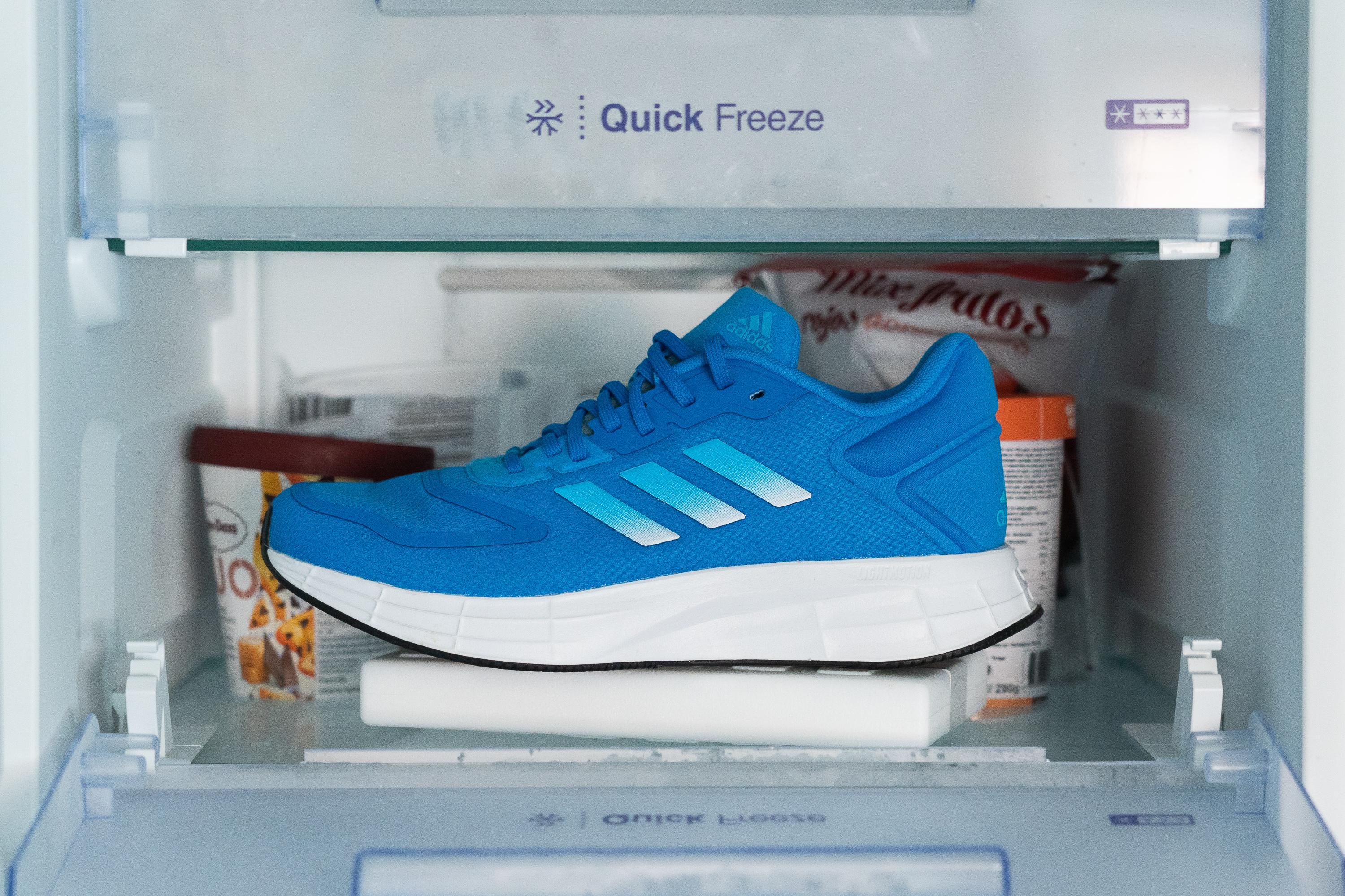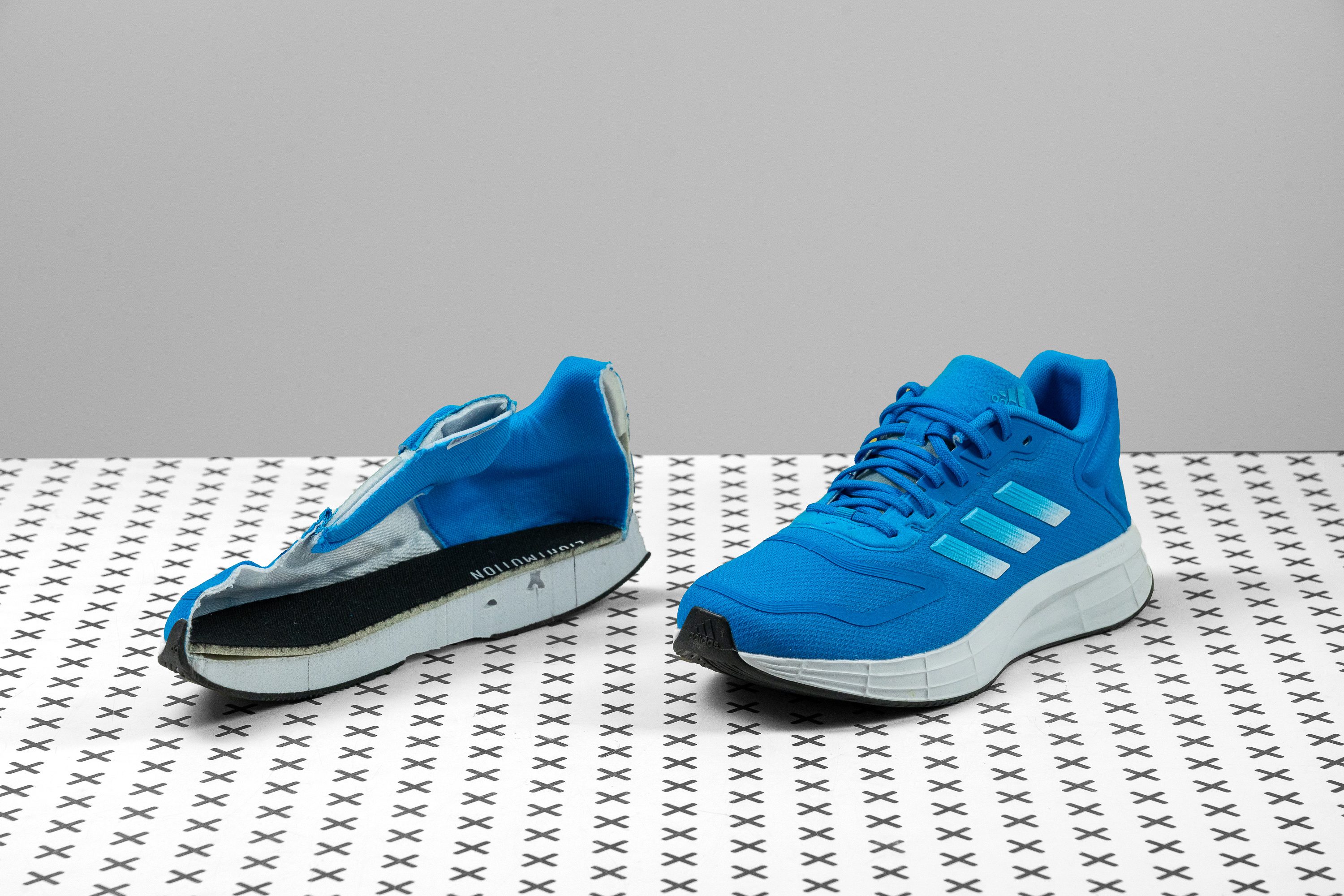Our verdict
Pros
- Comfy for all-day wear
- Lightweight for its kind
- Stable even during sharp turns
- Breezy on warm days
- Perfect for beginners
- Can handle gym training
- Durable for the price
- Soft upper
- Affordable
- Eco-friendly upper
Cons
- Break-in period for wide feet
- Lacks spring for fast runs
Audience verdict
Comparison
The most similar running shoes compared
+ + Add a shoe | |||||
|---|---|---|---|---|---|
| Audience score | 84 Good! | 88 Great! | 90 Superb! | 86 Good! | |
| Price | $70 | $90 | $130 | $120 | |
| Pace | Daily running | Daily running | Daily runningTempo | Daily running | |
| Shock absorption | - | Moderate | High | Low | |
| Energy return | - | Low | Moderate | Moderate | |
| Traction | - | High | High | High | |
| Arch support | Neutral | Neutral | Neutral | Neutral | |
| Weight lab Weight brand | 10.3 oz / 292g 9.7 oz / 275g | 9.2 oz / 261g 9.3 oz / 263g | 8.6 oz / 245g 8.4 oz / 238g | 11.8 oz / 335g 11.2 oz / 318g | |
| Lightweight | ✗ | ✗ | ✓ | ✗ | |
| Drop lab Drop brand | 8.7 mm 9.0 mm | 6.0 mm 6.0 mm | 8.2 mm 9.0 mm | 9.3 mm 10.0 mm | |
| Strike pattern | HeelMid/forefoot | Mid/forefoot | HeelMid/forefoot | HeelMid/forefoot | |
| Size | True to size | True to size | Half size small | True to size | |
| Midsole softness | Balanced | Balanced | Balanced | Balanced | |
| Difference in midsole softness in cold | Small | Small | Small | Small | |
| Toebox durability | - | Bad | Bad | - | |
| Heel padding durability | - | Decent | Good | - | |
| Outsole durability | - | Good | Decent | - | |
| Breathability | - | Breathable | Breathable | - | |
| Width / fit | Narrow | Medium | Wide | Medium | |
| Toebox width | - | Medium | Medium | - | |
| Stiffness | Stiff | Stiff | Moderate | Moderate | |
| Torsional rigidity | Stiff | Stiff | Moderate | Moderate | |
| Heel counter stiffness | Flexible | Moderate | Flexible | Moderate | |
| Heel lab Heel brand | 31.6 mm 32.0 mm | 32.7 mm 29.0 mm | 34.9 mm 35.0 mm | 30.7 mm 32.0 mm | |
| Forefoot lab Forefoot brand | 22.9 mm 23.0 mm | 26.7 mm 23.0 mm | 26.7 mm 26.0 mm | 21.4 mm 22.0 mm | |
| Widths available | NarrowNormalWide | Normal | NormalWide | Normal | |
| Orthotic friendly | ✓ | ✓ | ✓ | ✓ | |
| Season | - | SummerAll seasons | SummerAll seasons | - | |
| Removable insole | ✓ | ✓ | ✓ | ✓ | |
| Ranking | #253 Bottom 33% | #283 Top 42% | #47 Top 13% | #192 Bottom 49% | |
| Popularity | #237 Bottom 38% | #295 Top 44% | #180 Top 47% | #150 Top 40% |
Size and fit
Size
Adidas Duramo 10 fits true to size (58 votes).
Who should buy the Adidas Duramo 10
We determined which individuals are mostly suited to the Duramo 10 from Adidas. It is an excellent choice for everyday runners who want a:
- cheap running shoe that puts comfort at the forefront
- daily trainer that's great for short to long miles on the road
- versatile shoe that's suited for runs, all-day wear, walks, and gym training
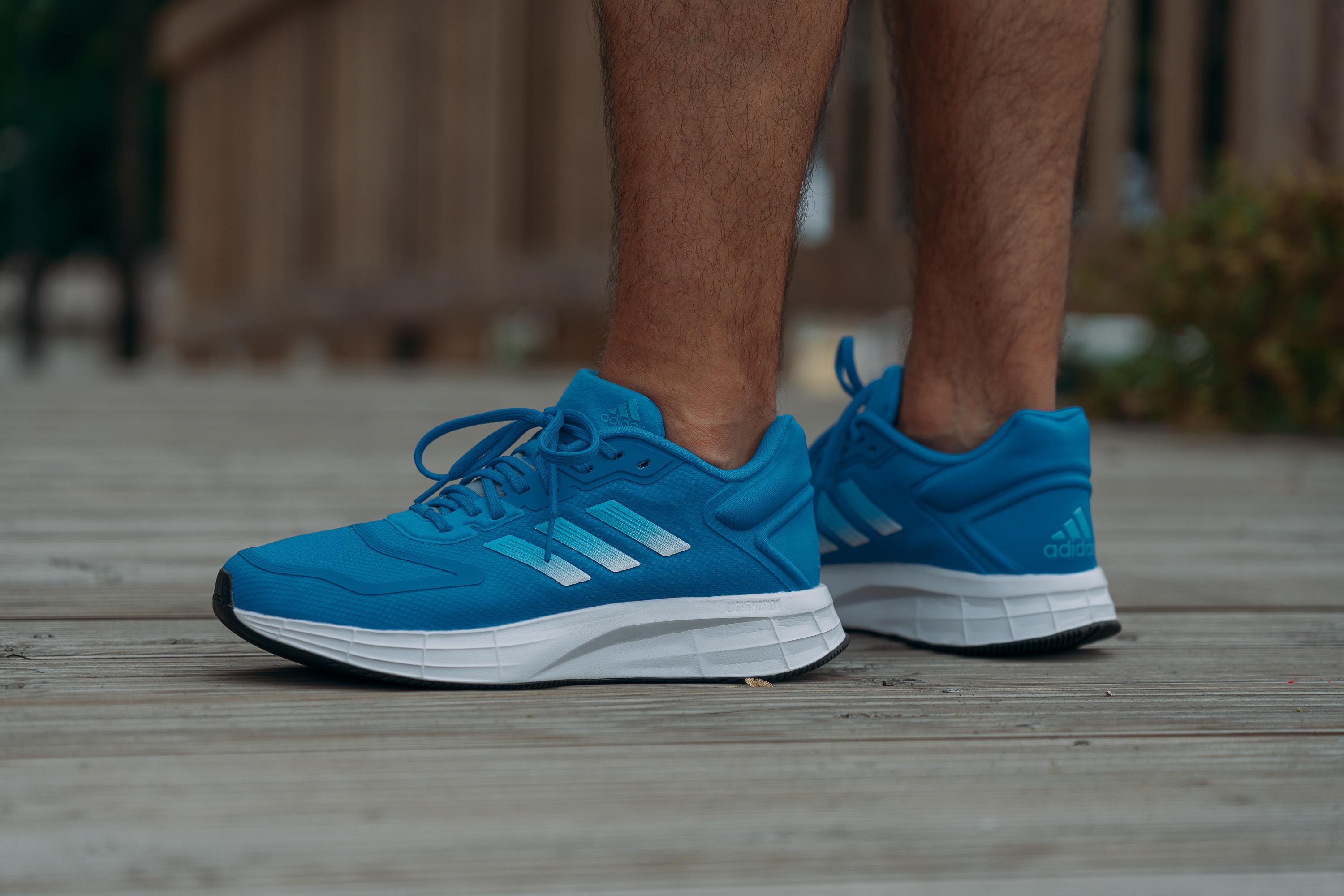
Duramo 10 vs. 9: what's new
The Duramo 10 doesn't have a huge departure from the Duramo 9, save for the new cushion and more eco-conscious upper.
Instead of using Adidas' proprietary Cloudfoam midsole, the Duramo now has a Lightmotion cushion for more pronounced comfort.
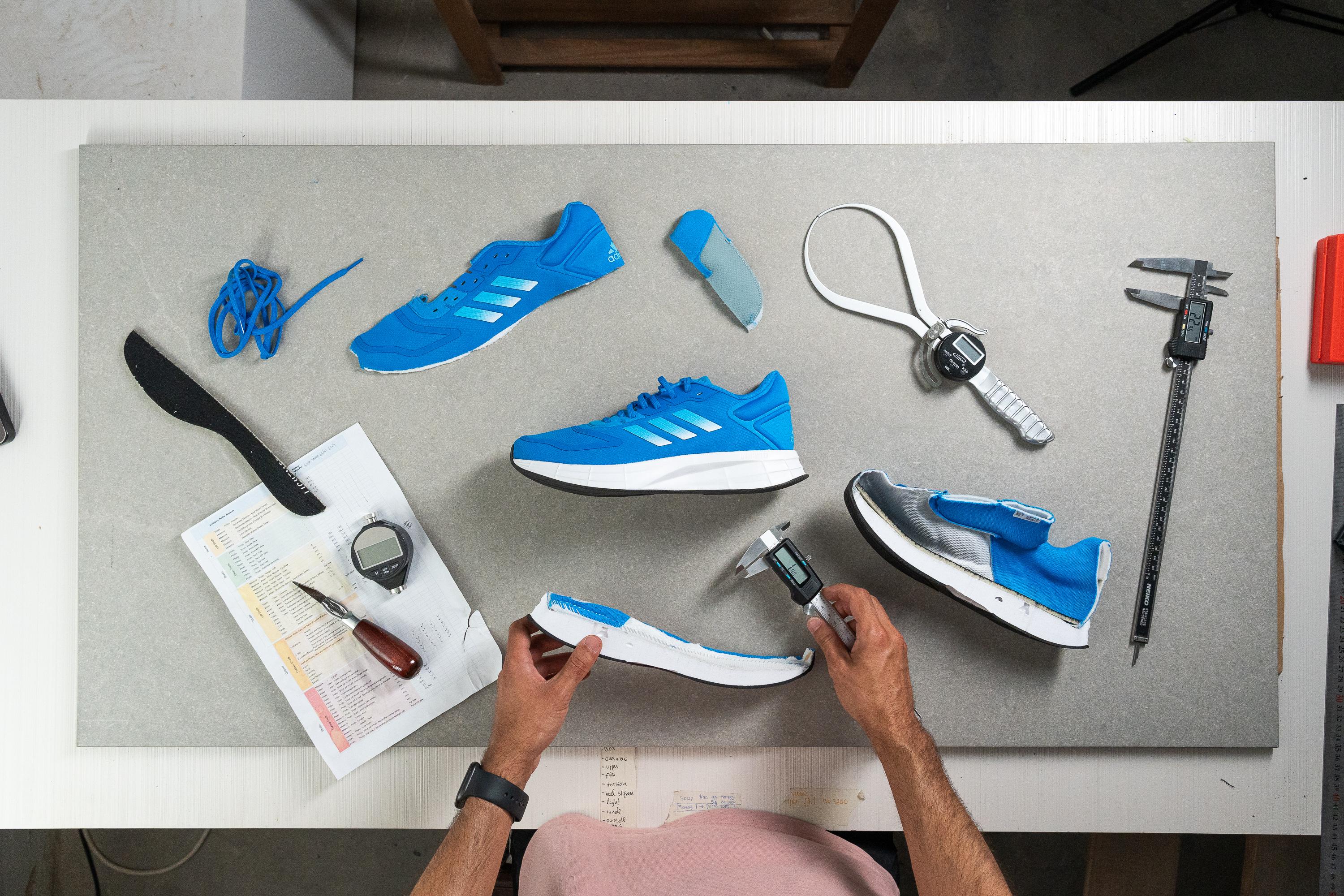
To align with the brand's aim to end plastic waste, the Adidas Duramo 10 also sports an upper made out of 50% recycled content.
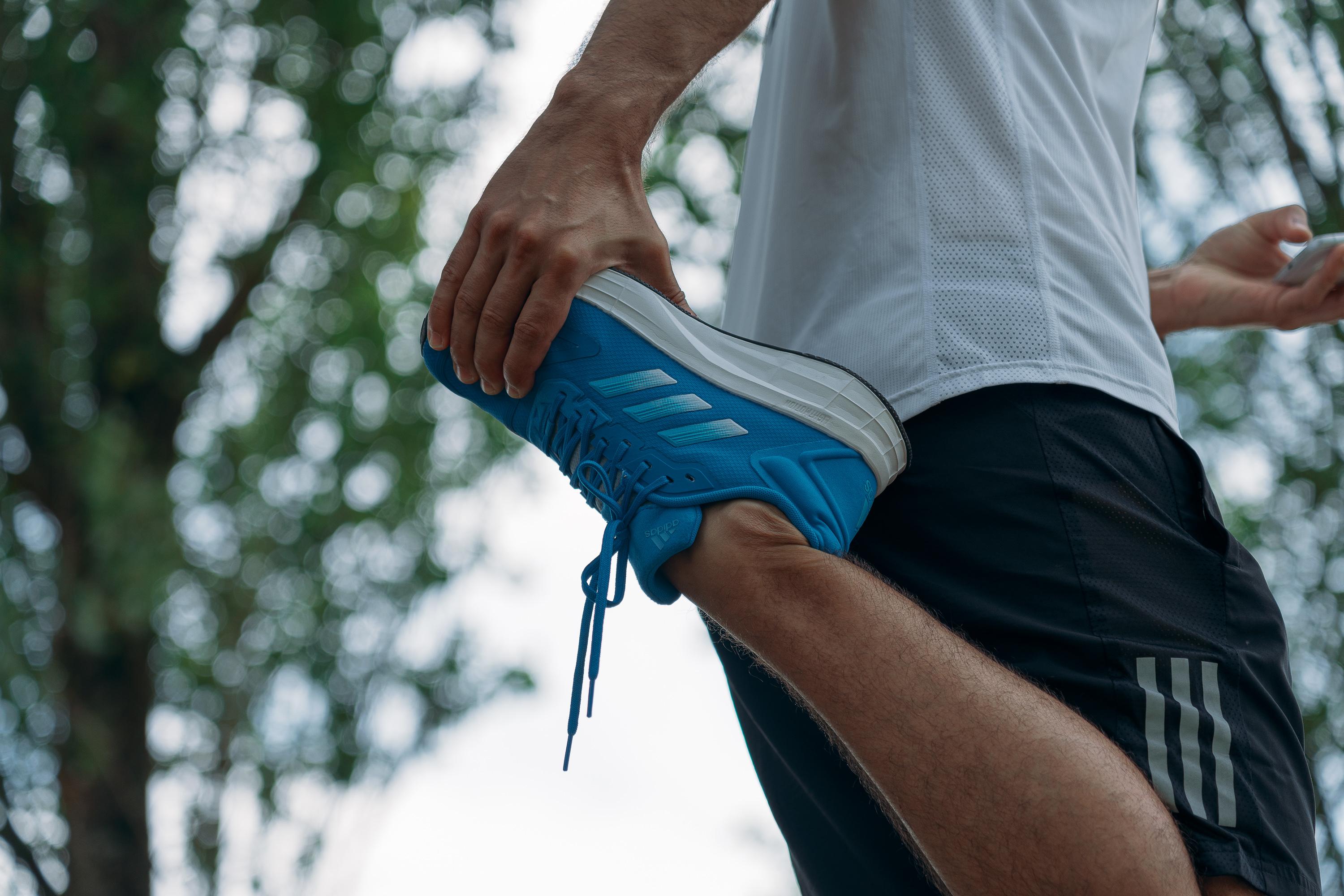
Comfort that lasts
Even after long miles on the road, the Duramo 10 never taxed our feet. We found it to be surprisingly cozy for its modest price point!
There is also a generous amount of cushioning in both the heel (31.6 mm) and the forefoot (22.9 mm).
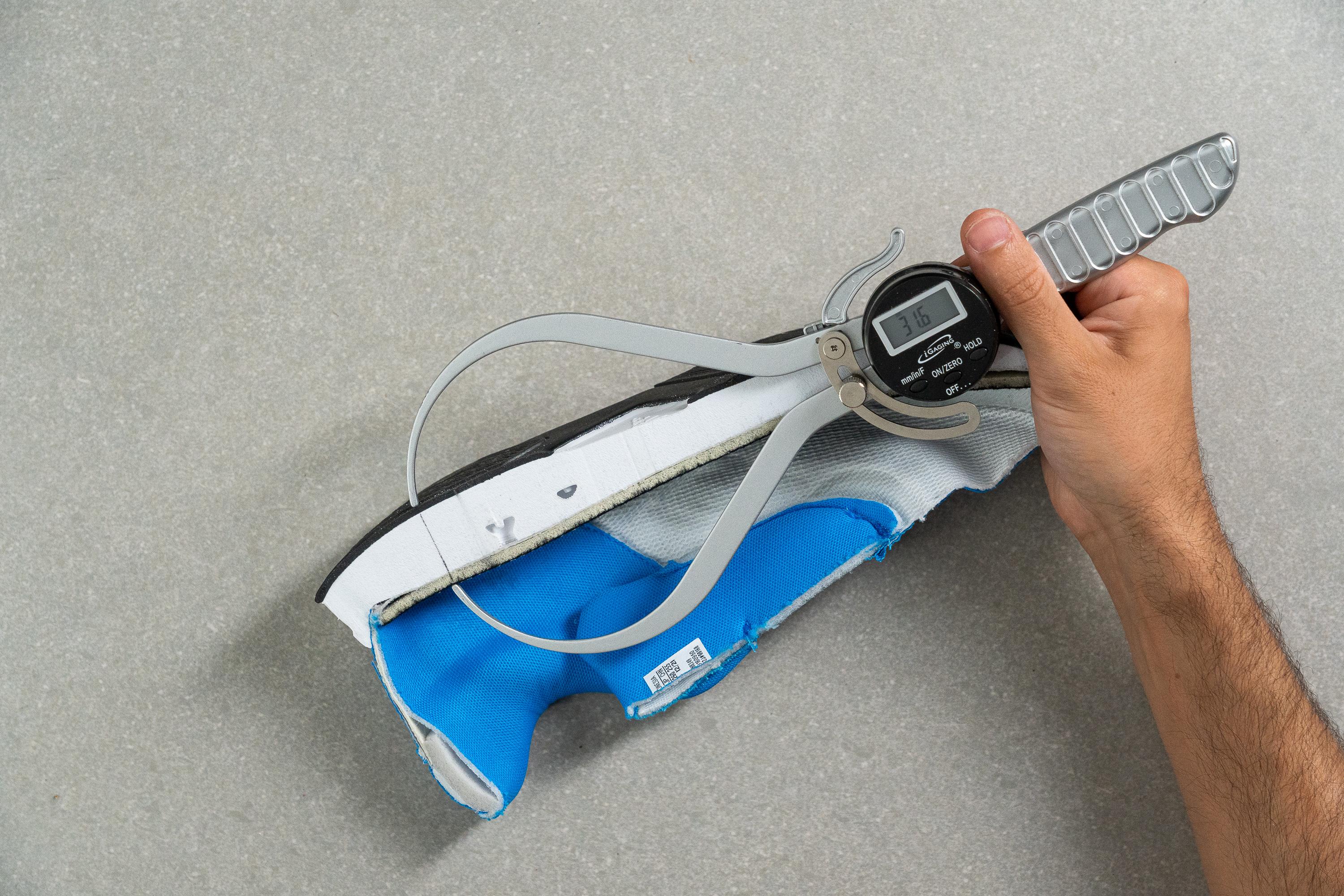
Checking the shoe's softness, we can see that it is indeed slightly on the soft side. The durometer shows 21.8 HA which is 10% softer than road running shoes on average.
For running, the ride could be more inspiring
This Adidas trainer didn't feel very bouncy or springy, and it's not very energetic. If you're planning to pick up the pace, it might be a bit of a challenge to do in the Duramo.
Surprisingly lightweight
The Duramo 10 is so light that it felt like the shoe disappeared the moment we started running!
Putting it on our scale, we weighed the shoe at 9.7 oz (275g), while the average weight of daily trainers with a stack height above 30 mm is 10.5 oz (299 g).
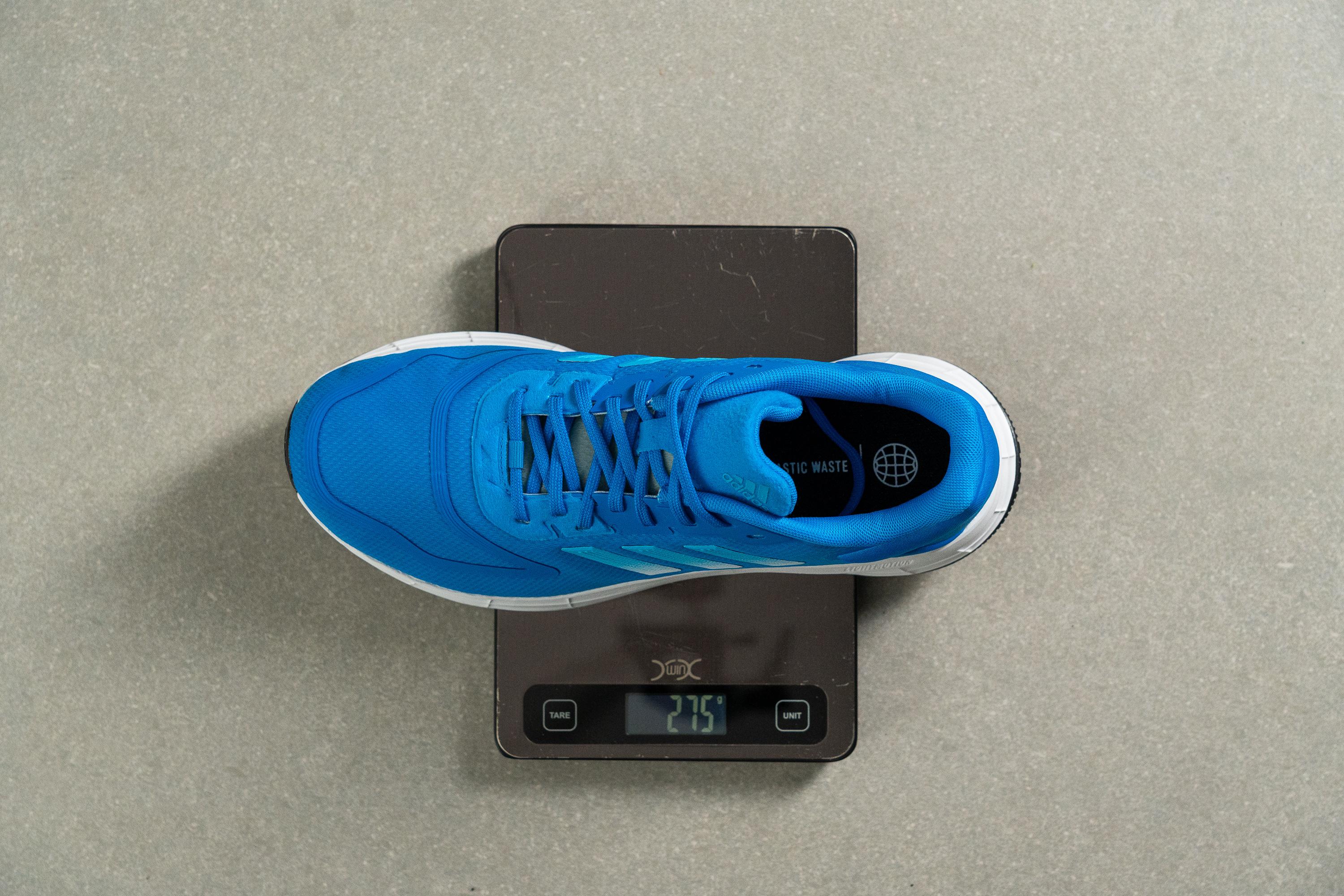
Keeps the foot in place
For our medium-width feet, the fit is spot-on! The heel hold is secure and so is the midfoot. Because of this, our strides remained steady even during sharp turns.
Contributing to the surefooted and steady experience is the shoe's nice and wide platform. Using a caliper, we measured its width at 109.8 mm in the forefoot and 87.8 mm in the heel, which is about the same as the other prominent daily trainers.
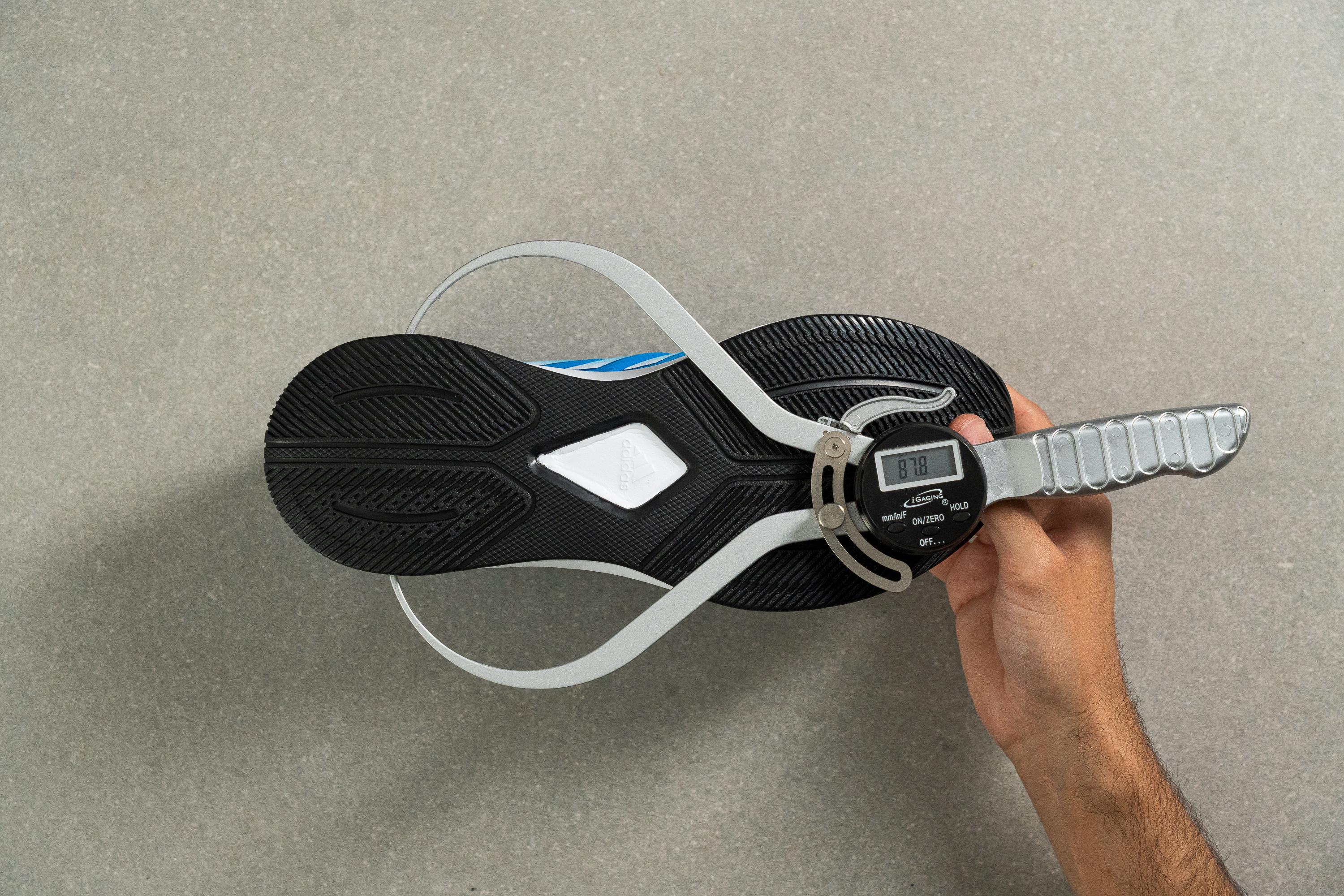
Ready for the heat
Testing the Adidas Duramo 10 in warm summer conditions, we found that it remains breezy at all times. Its upper is very light and perforated making it easy for the air to penetrate and keep the foot sweat-free.
See how much light passes through the shoe's upper material in our breathability test:
Wraps comfortably around the foot
The Duramo 10's upper feels nice and soft and very tender on the skin.
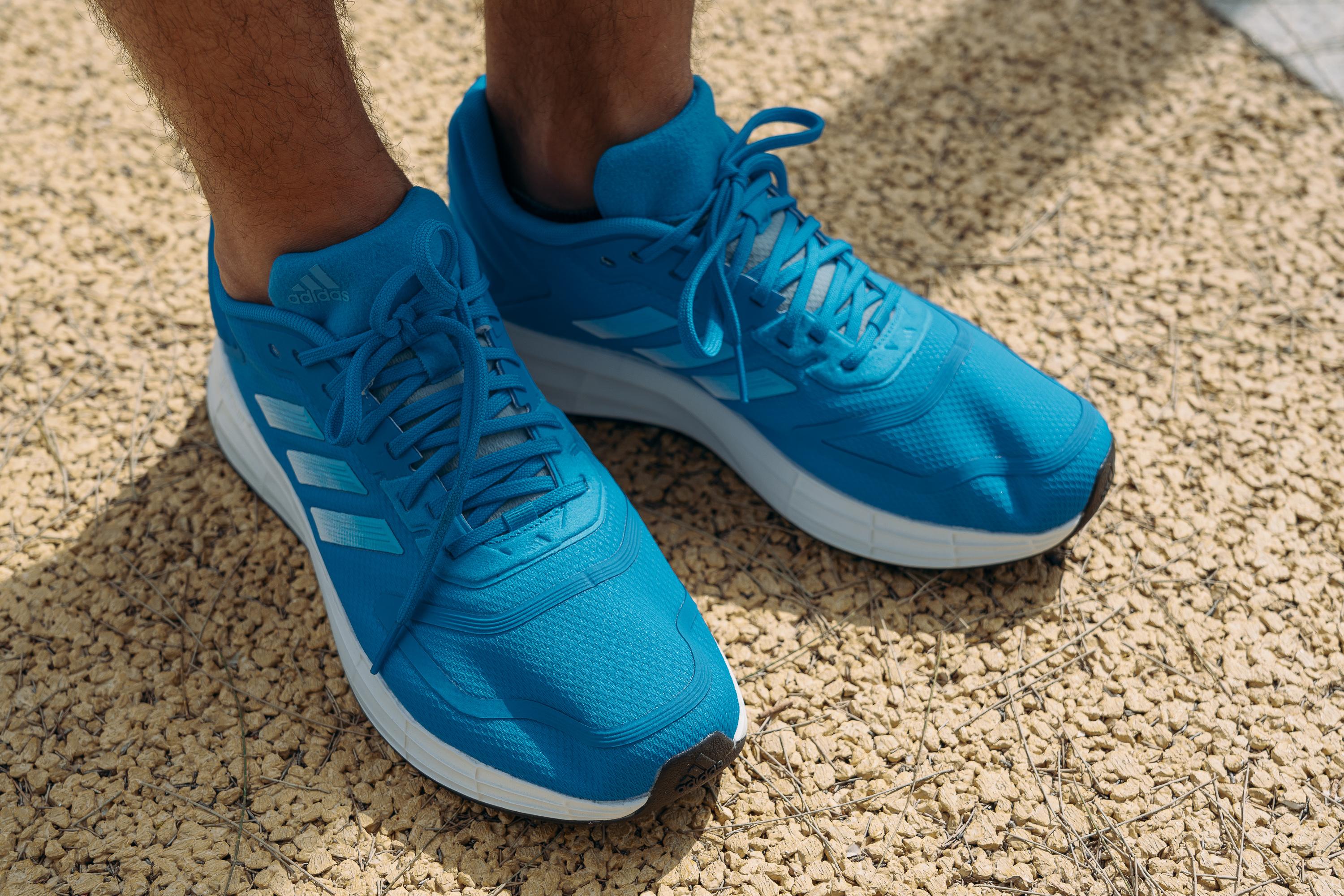
The Duramo 10 is perfect for average-width feet
This Adidas shoe has just enough room in the toebox to provide an accommodating fit.
However, people with average-width feet have nothing to worry about as the shoe's upper width is right at the average of most running shoes: 98.3 mm compared to 98.7 mm.

Adidas Duramo 10 is a steal for the price
The shoe retails at a ridiculously low price ($70), making it one of the most affordable running shoes on the market. We honestly can't believe that the shoe is priced so low given all of its characteristics and performance.
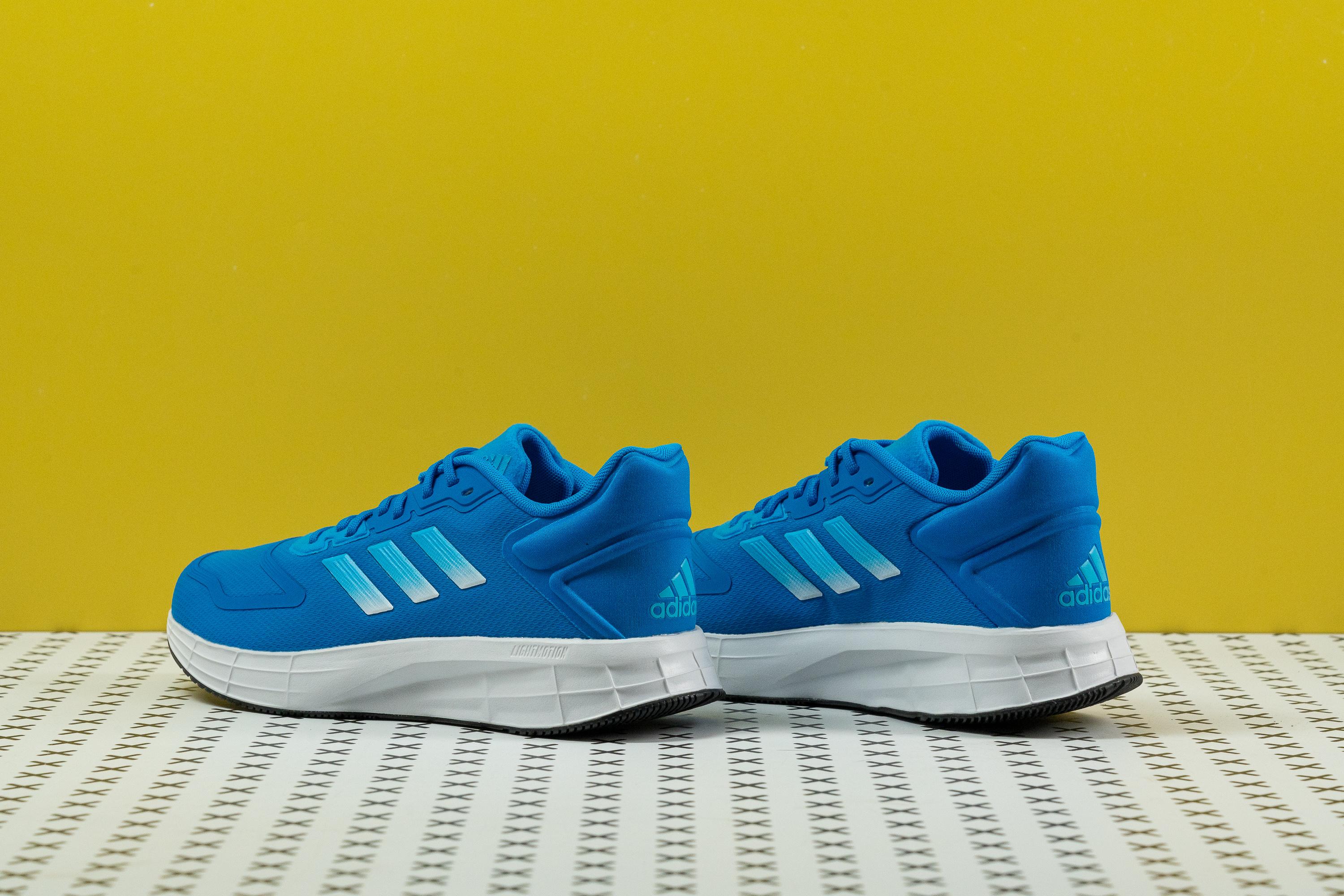
For reference, the average price of daily running shoes from Adidas is $137.
Durability looks promising too
A full-length rubber outsole guards the Duramo 10 against everyday wear and tear.
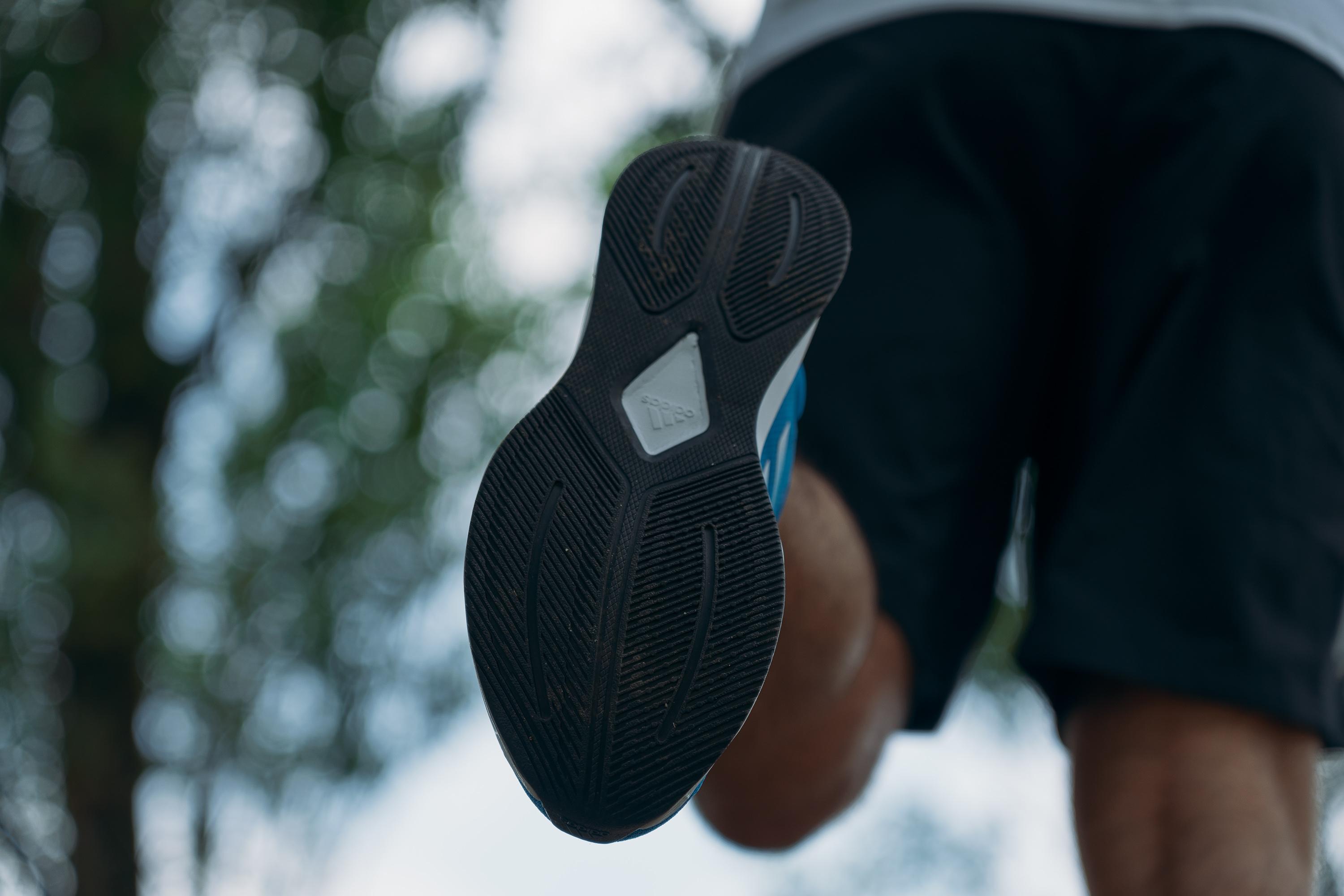
We measured it to be 2.3 mm thick (average: 3.5 mm) and 78 HC firm (average: 80 HC). Both are a little lower than the average but are still significant for a trainer in this price range.
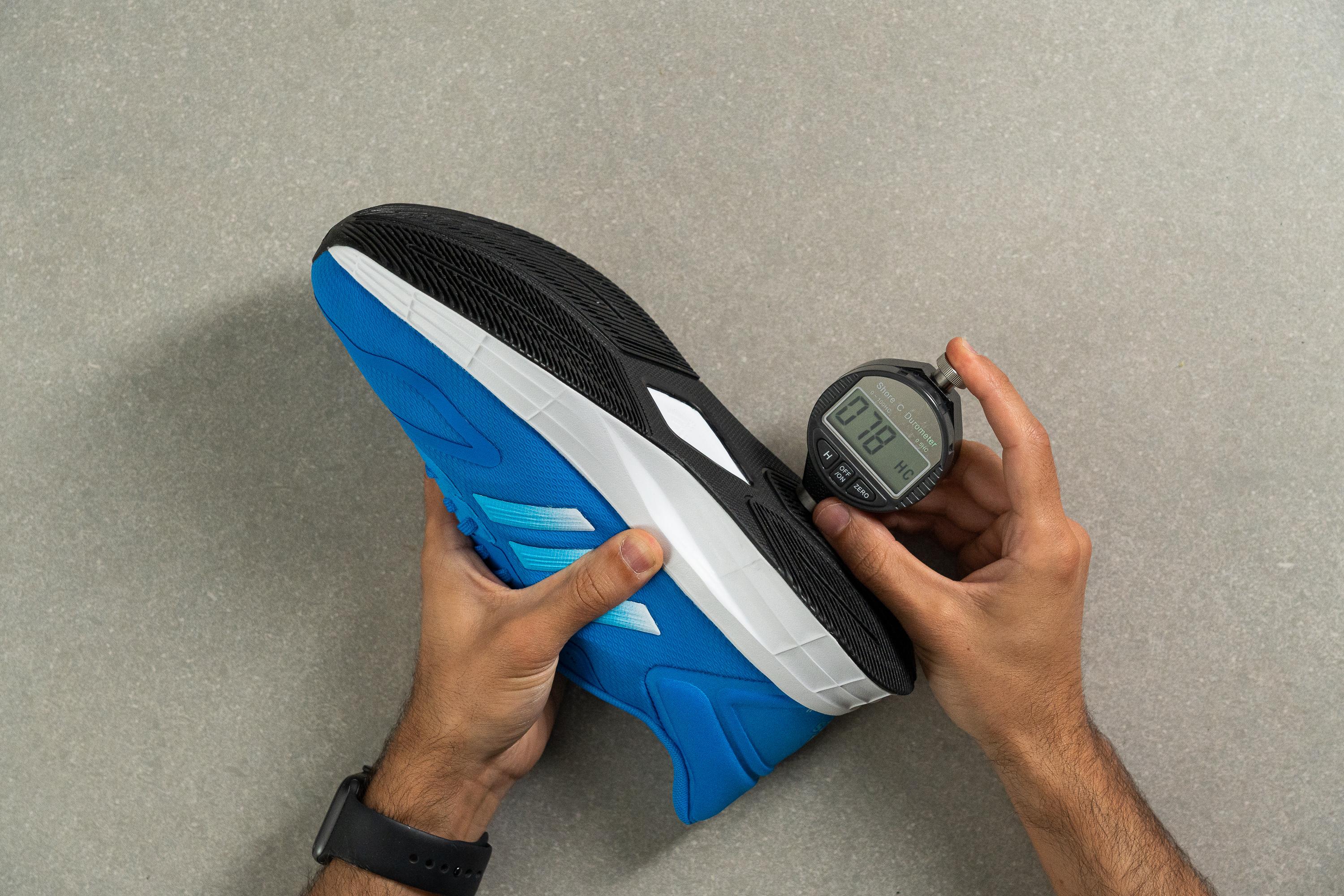
Gets much stiffer in colder temperatures
If you plan to wear the shoe out in colder weather, mind that the shoe becomes a whopping 85% stiffer! So it will make the shoe noticeably less bendy in the forefoot.
The midsole softness goes from 32N to 59.2N! For comparison, most foams only get around 30-40% stiffer in our freezer test.
